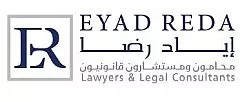- with readers working within the Metals & Mining industries
- within Employment and HR, Technology and Energy and Natural Resources topic(s)
- with Inhouse Counsel
All companies operating within Saudi Arabia must adhere to strict corporate governance regulations. The way a company must be governed varies based on the form a company chooses to take, i.e., limited liability companies (LLC), joint stock companies, limited partnerships (LLP), etc... Foreign companies may also establish subsidiaries or branch offices, each form having slightly disparate corporate governance laws.
REAL ESTATE LAW
Foreign companies are allowed to own real estate for business operations, i.e., housing for employees of the company. The acquired real estate must be used exclusively for the conduction of a company's stipulated business activities and may not be used for other business ventures or activities
DATA PROTECTION
In general, the recently enacted Data Protection Law aims to protect the processed and collected personal data of individuals in Saudi Arabia. This includes personal data of deceased individuals if such information leads to such individuals or their families.
In addition to the protection of personal data, the Law regulates communication between different entities and prevents the misuse of private data. The Data Protection Law ensures the implementation of the following:
- Prohibiting using personal ways of communication for marketing or awareness purposes without the owner's consent.
- Protecting the privacy of the public's personal data and creates a secure society.
- Maintaining privacy while sharing and processing data.
- Contributing to the new data-based digital economy.
- Regulating the use of private data to ensure optimal data use.
The content of this article is intended to provide a general guide to the subject matter. Specialist advice should be sought about your specific circumstances.


